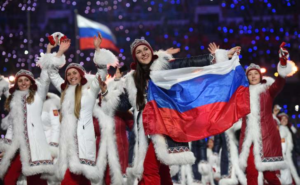As if this world of ours hasn’t gone batty enough … we get this word from the International Olympic Committee.
The IOC has banned the Russian Olympic Committee for what it calls “systematic doping” among Russian athletes. Is that clear?
Sort of. Get this: The IOC says Russian athletes can compete as “neutral” competitors; they won’t stand under the Russian flag, nor will they compete in the name of their country.
My question is this: What happens if a Russian wins an event? Tradition says they play the national anthem of the gold-medal winning country during the award ceremony. Will they play the Russian anthem?
The Russian Olympic Committee has threatened a boycott if this ruling stands. I think it will. Thus, the Russians will do what they did in 1984 when the Soviet Union boycotted that year’s Summer Olympics in Los Angeles; that boycott retaliated against the U.S.-led boycott of the Moscow Summer Olympics in 1980 after the Soviet Union invaded Afghanistan.
I do not object to the IOC ruling regarding the 2018 Winter Games in Pyeonchang, South Korea. The IOC has accused the Russians of state-sponsored doping that has been detected among dozens of Russian athletes.
Doping is cheating. The Olympics are supposed to symbolize the best in sports. The Games are meant to pit athlete against athlete, pitting men and women against each other fairly and on level playing fields. The Russian efforts to boost their athletes’ prowess through drugs slaps the Olympic spirit squarely in its face.
It must be a Russian-government ethic that has pervaded the once-pristine world of sports. Hey, does this episode remind anyone — other than me — of the Russian attempts to influence the 2016 presidential election?
